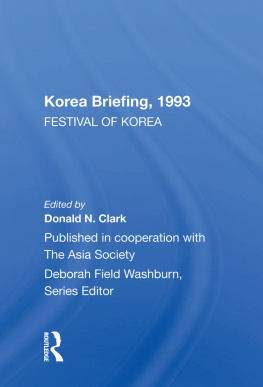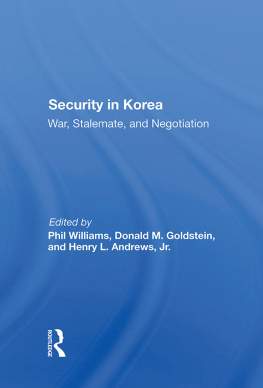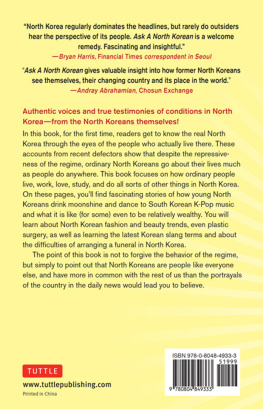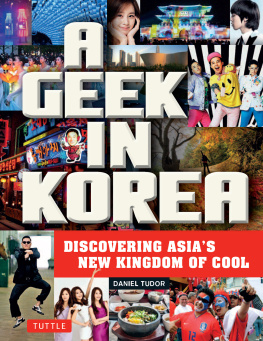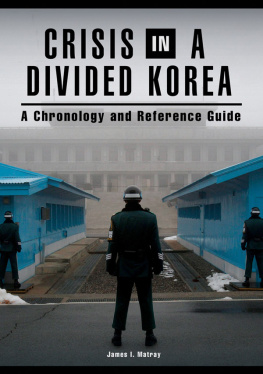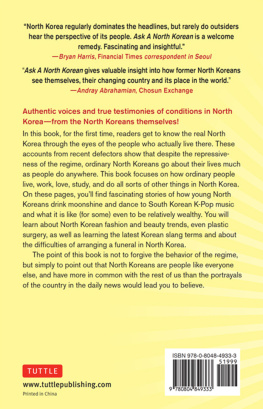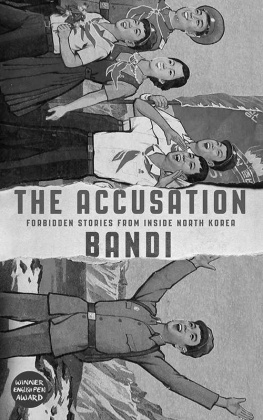Korea Briefing, 1992
Korea Briefing, 1992
edited by
Donald N. Clark
Published in cooperation with The Asia Society
Deborah Field Washburn, Series Editor
First published 1992 by Westview Press
Published 2018 by Routledge
52 Vanderbilt Avenue, New York, NY 10017
2 Park Square, Milton Park, Abingdon, Oxon OX14 4RN
Routledge is an imprint of the Taylor & Francis Group, an informa business
Copyright 1992 by The Asia Society
All rights reserved. No part of this book may be reprinted or reproduced or utilised in any form or by any electronic, mechanical, or other means, now known or hereafter invented, including photocopying and recording, or in any information storage or retrieval system, without permission in writing from the publishers.
Notice:
Product or corporate names may be trademarks or registered trademarks, and are used only for identification and explanation without intent to infringe.
Library of Congress ISSN: 1053-4806
ISBN 13: 978-0-367-00469-9 (hbk)
Korea continues to be the scene of rapid and remarkable change, most of which bodes well for the future. A high point of the past year was the entry of North and South Korea into the United Nations, with separate seats in the General Assembly. At the end of 1991 the two states signed ground-breaking agreements on mutual "reconciliation" and denuclearization of the Korean peninsula. Domestically, South Korea's elected government has taken further steps toward the institutionalization of political reforms, although that process remains incomplete. In the North, Kim Il-sung, the "Great Leader," acted to shore up the position of his son and designated successor, Kim Jongil. The economic policies of both countries are undergoing evolution, with South Korea moving toward business-led growth and North Korea experimenting with limited opening to the outside world.
Korea Briefing, 1992 analyzes these and other developments. In addition to reviewing the domestic politics, foreign relations, and economies of North and South Korea, this year's volume covers South Korea's security ties with the United States, the history of the South Korean press over the past 30 years, and the difficulties Korean women face in a traditional society.
The Contemporary Affairs Department of The Asia Society prepares Korea Briefing and its companion volumes, China Briefing and India Briefing, and copublishes them with Westview Press. The Asia Society is a nonprofit, nonpartisan educational organization whose mission is to increase understanding of Asia and its importance to the United States and the world at large.
Again this year, Donald N. Clark assembled a first-rate team of authors and did a superb job of editing the chapters. The Society is grateful to him and to the other contributors for their unflagging commitment through several revisions. The views expressed in Korea Briefing are those of the authors and not of The Asia Society.
July 1992
Marshall M. Bouton
Executive Vice President
The Asia Society
Donald N. Clark
In a November 1991 issue, the Asian edition of Newsweek carried a controversial cover story entitled "KoreaToo Rich Too Soon?" The story noted South Korea's recent penchant for consumer spending while the country's balance of trade was in the red and its foreign debt was on the rise. Stung by the criticism, some Koreans responded defensively by accusing the American editors of Newsweek of seeking revenge over Korea's trade policies. Others took it more thoughtfully, asking if the country could afford to slack off in its decades-long effort to increase development, productivity, and foreign exports.
Indeed, to no one's surprise, signs of stress abounded in South Korea in 1991. The economy, though better than in 1990, still was feeling the effects of rising wages, inflation, and other factors cutting into the export-led growth rates of the 1980s. A major housing scandal and exposes of bribery heightened public cynicism about politics. Korea's transportation arteries were clogged with vehicles whose emissions fouled city air, taking the fun out of the long-awaited "my car" era.
The late spring brought a wave of street protests including public suicides by young people professing to prefer death to life amid objectionable conditions. The older generation, appalled, wondered again about the price of modernization. When Kim Tong-gil, a professor famous for resisting the government in the 1970s and 1980s, questioned the efficacy of protest suicides, he was denounced by his own students. Eventually he joined with Hyundai tycoon Chung Ju-yung to found an alternative political party. With legislative and presidential elections scheduled for 1992 in circumstances of unprecedented political freedom, the politicians jockeyed for position. With President Roh Tae-woo constitutionally unable to succeed himself in office, alliances formed and were dissolved, factions maneuvered, and all signs pointed to a rough-and-tumble political year.
From a distance, however, the blemishes were less conspicuous and the picture appeared more complete. The summer of 1991 brought the fourth anniversary of President Roh's June 29 Declaration, and people used the opportunity to take stock. Nearly everyone agreed that the political atmosphere was freer and that democracy had been effectively extended through the long-promised local government elections that took place in March and June of 1991. The world welcomed South and North Korea to full membership in the United Nations, even while fretting about North Korea's purposes in developing nuclear weapons potential. And North Korea, ever more isolated by the collapse of communism and diminishing support from China and the former Soviet Union, found itself obliged to seek economic aid through widening contacts with Japan, the United States, and even the rival government in Seoul. Indeed, 1991, a year of unprecedented contacts between high-level officials of North and South, closed with a historic achievement: a package of accords that promised a new era of nonaggression, cooperation, and nuclear-free coexistence.
In Korea Briefing, 1992, the third of The Asia Society's annual surveys of the contemporary Korean scene, seven leading authors enlighten us with their special expertise. Three chapters shed light on the main issues in North and South Korea from differing perspectives. Byung Chul Koh's lead chapter examines political trends in South Korea in the context of the two Koreas' international position. Koh's presentation highlights the harvest from Seoul's Nordpolitik policy, pointing to the culmination of long-term efforts to expand contacts with former communist countries and China, and to join the United Nations. In the second chapter, Kongdan Oh goes deeper into the problems facing North Korea in her assessment of the way Pyongyang is facing the dual crises of international isolation and the imminent passage of power from longtime leader Kim Il-sung to his son and heir, Kim Jong-il. And in the third chapter, John Merrill and William J. Taylor, Jr., take up the changing balance of U.S.-South Korea military relations as the United States moves from a leading to a supporting role in Korean defense, covering changes in command relationships and plans for future defense of the peninsula. Especially useful is their discussion of the nuclear proliferation issue raised in 1991 by North Korea's apparent nuclear weapons program, and the attempts by the world community to deter development of a dangerous and destabilizing nuclear confrontation across the Demilitarized Zone.



